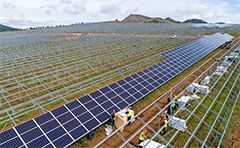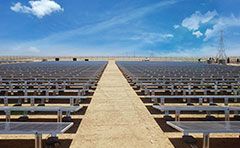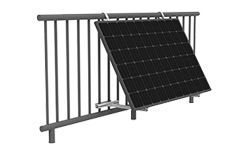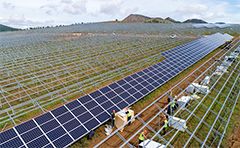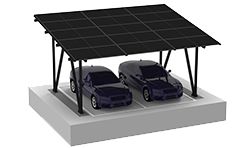Ember has released the European Electricity Review report, which shows that EU gas-fired power generation fell for the fifth consecutive year (-6%), and total fossil fuel power generation also fell to a record low.
The report shows that solar power generation in the EU increased by about 22% last year to around 304 TWH. In contrast, coal power fell by nearly 16% to just over 269TWH
"The influence of fossil fuels on EU energy is diminishing," Ember senior analyst Chris Rosslowe said in a statement. At the launch of the European Green Deal in 2019, few thought the EU’s energy transition would reach what it is today; wind and solar were pushing coal to the margins and forcing a structural decline in gas.

Wind power and solar power generation continue to grow rapidly
Driven by the European Green Deal, solar power generation (11%) in the EU exceeded coal power generation (10%) for the first time in 2024, while wind power (17%) exceeded gas power generation (16%) for the second year in a row, with renewables accounting for nearly half (47%) of electricity generation.
Fossil fuels will account for 29% of the EU’s electricity supply in 2024. In 2019, before the Green Deal, fossil fuels accounted for 39% of the EU’s electricity supply and renewable only 34%.
According to reports, the installed capacity of photovoltaic power generation in all EU member states is growing steadily, and more than half of the countries now either have no coal power or the share of coal power in their power mix is less than 5%.

EU is reaping the benefits of reducing dependence on fossil fuels
A surge in wind and solar power has reduced the EU's dependence on imported fossil fuels and made it less vulnerable to price fluctuations since the energy crisis.
Ember analysis said: Without the new wind and solar capacity added over the past five years, the EU would have imported an additional 92 billion cubic meters of fossil gas and 55 million tonnes of coal at a cost of €59 billion
Rosslowe said: "While the EU's electricity transition has been faster than anyone expected over the past five years, further progress cannot be taken for granted. Delivery needs to be accelerated, especially in wind power, which faces unique challenges and a growing delivery gap. Between now and 2030, annual new wind capacity needs to more than double 2024 levels."

“Policies and markets in Europe are driving the share of renewable energy,” said Gregory Nemet, an energy researcher at the University of Wisconsin-Madison and co-author of the Intergovernmental Panel on Climate Change (IPCC) report. “Wind and solar are growing in all large economies, and Europe is taking full advantage of the affordability, security and clean air benefits of renewable energy.”
The report also noted that the EU is expected to achieve its target of 400 gigawatts (GW) of solar installed capacity by 2025. In 2024, the EU's installed solar capacity has reached 338 GW. If the current growth rate is maintained, the target of 750 GW in 2030 will be within reach.





